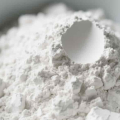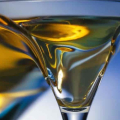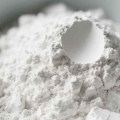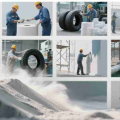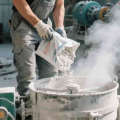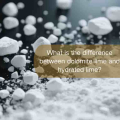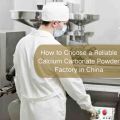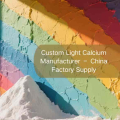- Welcome to China Calcium Carbonate Manufacturer
- WeChat:15078781000
Precipitated calcium carbonate (PCC) is a versatile and essential industrial material, playing a crucial role in sectors like paper manufacturing, paint production, plastics fabrication, and rubber processing. To fully utilize its potential, understanding its technical requirements is key. This article explores the top five critical aspects.

Chemical Composition: The Basis of PCC Quality
Purity Level
High – grade PCC for general industrial use usually has a CaCO₃ content of 97% – 99%. In food and pharmaceutical applications, where strict quality control is needed, the purity approaches 100%. For example, food – grade PCC as an additive must be highly pure to ensure food safety.
Impurity Control
Heavy Metals
Heavy metals like lead (Pb), mercury (Hg), cadmium (Cd), and arsenic (As) in PCC must be strictly limited. In food additives, the allowable limits are extremely low, often in ppm or ppb. The maximum lead content in food – grade PCC is usually 1 ppm. Excessive levels pose health risks, and the FAO/WHO Expert Committee on Food Additives (JECFA) guidelines provide guidance on acceptable limits. JECFA conducts comprehensive risk assessments on heavy metals in food, considering factors such as dietary exposure and potential health impacts. These assessments help in setting appropriate limits to safeguard public health. For more detailed regulations on heavy metal limits in food additives, you can refer to the [Food Safety National Standard – Limits of Contaminants in Foods (GB 2762-2022)which stipulates specific limits for various foods and additives, including those related to PCC when used in the food industry. This standard, jointly issued by the National Health Commission and the State Administration for Market Regulation in China, is based on risk assessment and international standards, aiming to ensure the safety of the food supply. Additionally, the EU has its own regulations regarding heavy metals in food additives. In 2023. the EU 2023/1329. which includes provisions related to the maximum limits of arsenic, lead, mercury, and cadmium in certain food additives. You can access more information on the EU’s official website .
Iron and Manganese
Iron and manganese, common impurities, can affect product properties. In paper – making, they may cause discoloration. Generally, iron content should be below 0.05% – 0.1%, and manganese below 0.01% – 0.03%, as per TAPPI standards.
Acid – Insoluble Matter
Acid – insoluble matter content is a key quality indicator. In high – quality PCC, it is less than 0.1% – 0.5%, indicating purity.
Physical Properties: Vital for Diverse Applications
Particle Size and Distribution
Particle Size
Particle size impacts PCC performance. In the paint industry, fine particles (0.1 – 1 micrometers) enhance gloss, while in paper, coarser ones (1 – 5 micrometers) improve opacity. ACA and TAPPI research details optimal sizes for different uses.
Particle Size Distribution
A narrow distribution ensures uniform particles, facilitating better dispersion in materials. In high – performance plastics, it improves mechanical properties.
Specific Surface Area
PCC’s specific surface area relates to reactivity and adsorption. In catalytic applications, a larger area (10 – 30 m²/g) is preferred, but in plastics, an overly large area can increase viscosity.
Morphology
Particle morphology affects PCC’s application. Spherical particles are suitable for powder coatings due to good flowability, while needle – like ones reinforce composites.
Whiteness
Whiteness is crucial in appearance – focused industries. In paper, PCC with a whiteness of 90+ (0 – 100 scale) boosts brightness. In cosmetics, even higher whiteness is required.
pH Value
The pH value of PCC in water (8 – 10.5) influences its stability. In water treatment, proper pH adjustment is necessary. The Water Environment Federation (WEF) provides resources on its use in such applications.
Thermal and Chemical Stability: Ensuring Reliability
Thermal Stability
PCC must withstand high – temperature processing in plastics. It should remain stable below 800 – 900 °C, its decomposition point.
Chemical Stability
PCC needs to be chemically stable in different applications. In rubber, it should not react with polymers during vulcanization. It also requires good acid resistance, except in applications with controlled reactivity.
conclusion
understanding PCC’s technical requirements is vital for various industries. By meeting these requirements, PCC can enhance product performance. Jintai, a leading Calcium Carbonate Manufacturer since 2008. with multiple production bases, offers high – quality PCC. Their products meet strict purity standards, control impurities well, and can be customized in particle size, ensuring reliable performance in different applications.
